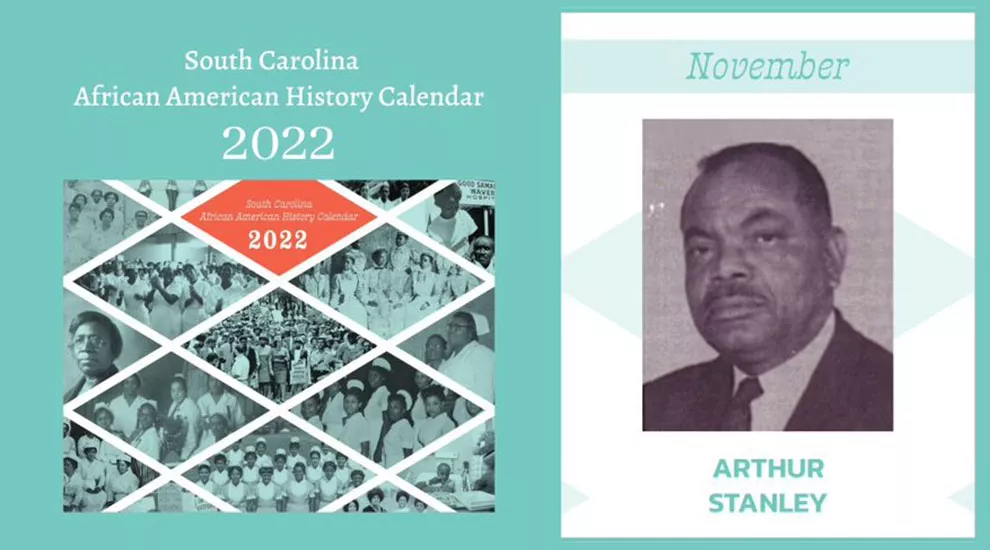
Businessman and civil rights advocate Arthur “Man” Whitfield Stanley, Sr. was born in Darlington, S.C., on August 19, 1914, to Mrs. Martha Stanley Hobday and Mr. Willie Gandy.
In 1941, he married Theodosia Desiree King, with whom he had three children. In 1943, he was drafted into the U.S. Army, where he served in the Army Transportation Corps until he was honorably discharged in 1945. Upon his return home, he joined the burgeoning Civil Rights Movement. He served as president of the Darlington County NAACP for forty years and worked closely with notable civil rights leaders such as Rev. I. DeQuincy Newman, Clarence Mitchell, and Ruby Hurley.
Stanley is best known for leading the effort to desegregate the public schools in Darlington with Stanley v. Darlington County School District, filed in 1964, and the school district desegregated only after a federal court order in 1970. Stanley also engineered the desegregation of the Darlington Public Library, several drug stores, and water fountains in the local courthouse.
Stanley became the first Black person elected to the Darlington City Council in 1968 after challenging discriminatory polling practices and suing for the implementation of single-member voting districts in both the city and county of Darlington.
His accolades include the Phi Beta Sigma award for Social Action, the James McBride Dabbs Award from the S.C. Council for Human Rights, and The Order of the Palmetto, presented by Governor David Beasley in 1995 for his tireless and steadfast work in Civil Rights. In 2011, Darlington’s Arthur W. Stanley Gymnasium was dedicated in his honor.
Presented through a partnership between the South Carolina Department of Education and South Carolina ETV.
View the series on KnowItAll.org here. View the Arthur Stanley Activity Sheets here.
Download the SC African American History Calendar here.
View the lesson plans and videos of each of the honorees on the SC African American History Calendar website.

